The young researchers listened to presentations on the topic from three speakers: Assoc. Prof. Dr. Nguyen Tuan Anh (Deputy Head of the Sociology Department, University of Social Sciences and Humanities) and two foreign professors, Prof. Norifumi Namatame (Tohoku Fukushi University, Japan) and Prof. Michael DiGregorio.
To begin, Associate Professor Dr. Nguyen Tuan Anh shared an overview of the research process and methods; the role of data and ways to analyze data in scientific research.
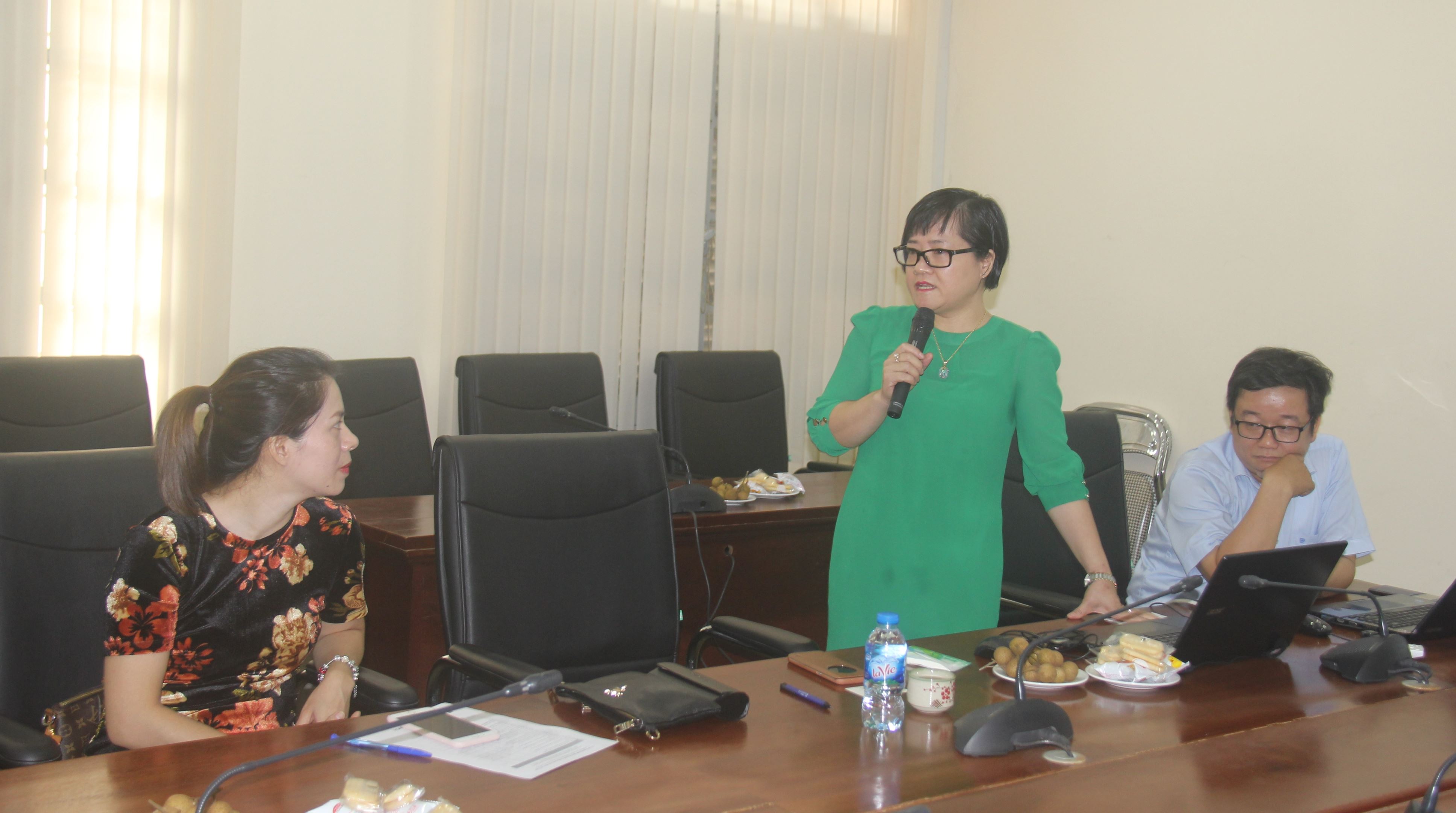
Associate Professor Dr. Tran Thi Minh Hoa (Vice Rector of the University) delivered a speech at the training session.
According to him, when we talk about science and scientific research, we are talking about a form of truth, but it must be based on evidence. Therefore, to conduct scientific research, it is essential to rely on data. There are many methods of collecting and analyzing data, but generally speaking, the important methods are: reading documents, observation, interviews, and surveys.
When starting a scientific research project, researchers must clearly define the research topic and problem. "When we recognize the gap between what we already know and what we hope to know in the future, we can identify a particular social problem and from there develop a research topic," said Associate Professor Dr. Nguyen Tuan Anh.
Next, researchers need to conduct a research review to see what previous researchers have done in their field of interest and to discover something new, avoiding repetition of what others have already done. From there, the author identifies the research question and hypothesis; designs the research content and implements the research plan in practice. When conducting research, authors need to combine a variety of qualitative and quantitative research methods. Among these, in-depth interviews and surveys are two very common and fundamental methods in scientific research.
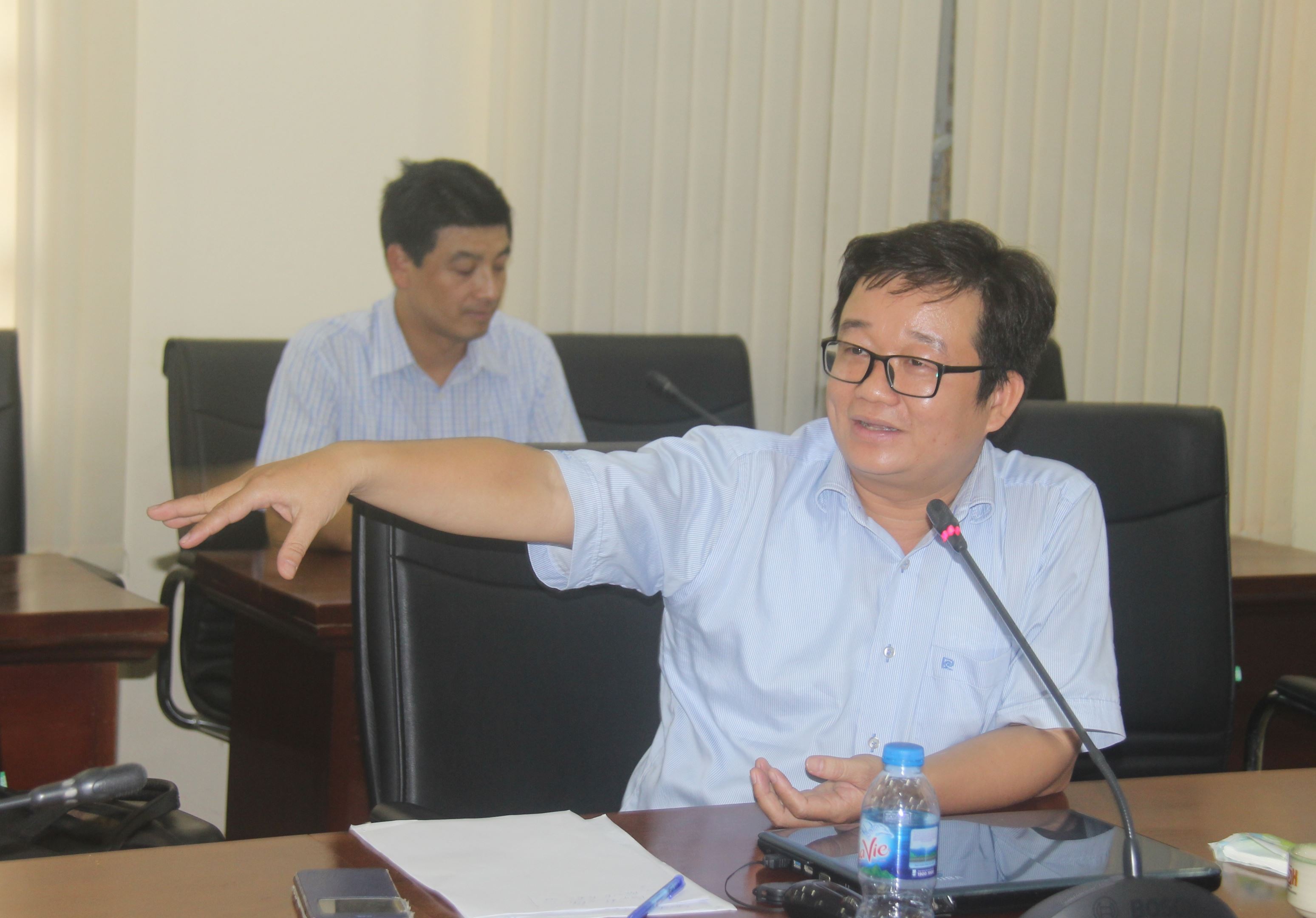
Associate Professor Dr. Nguyen Tuan Anh presented on the scientific research process and delved into two important data collection methods: in-depth interviews and surveys.
Sharing his views on in-depth interviews, Associate Professor Dr. Nguyen Tuan Anh stated that there are two conceptions of interviewing. One view considers it a process of extracting data that the researcher needs and that the interviewee already possesses. The second view holds that data is not only readily available to the interviewee, but that new information and data are generated through direct exchange and interaction. Data is created during the interview process. Sometimes, during the questioning and in-depth analysis, the author may even discover new directions and gain more valuable information than initially intended.
In-depth interviews are both structured and flexible. To conduct an in-depth interview, researchers must envision the diverse dimensions of the issue in order to design precise questions. Furthermore, for an effective interview and to obtain a wealth of data, the conversation must unfold as naturally as possible.
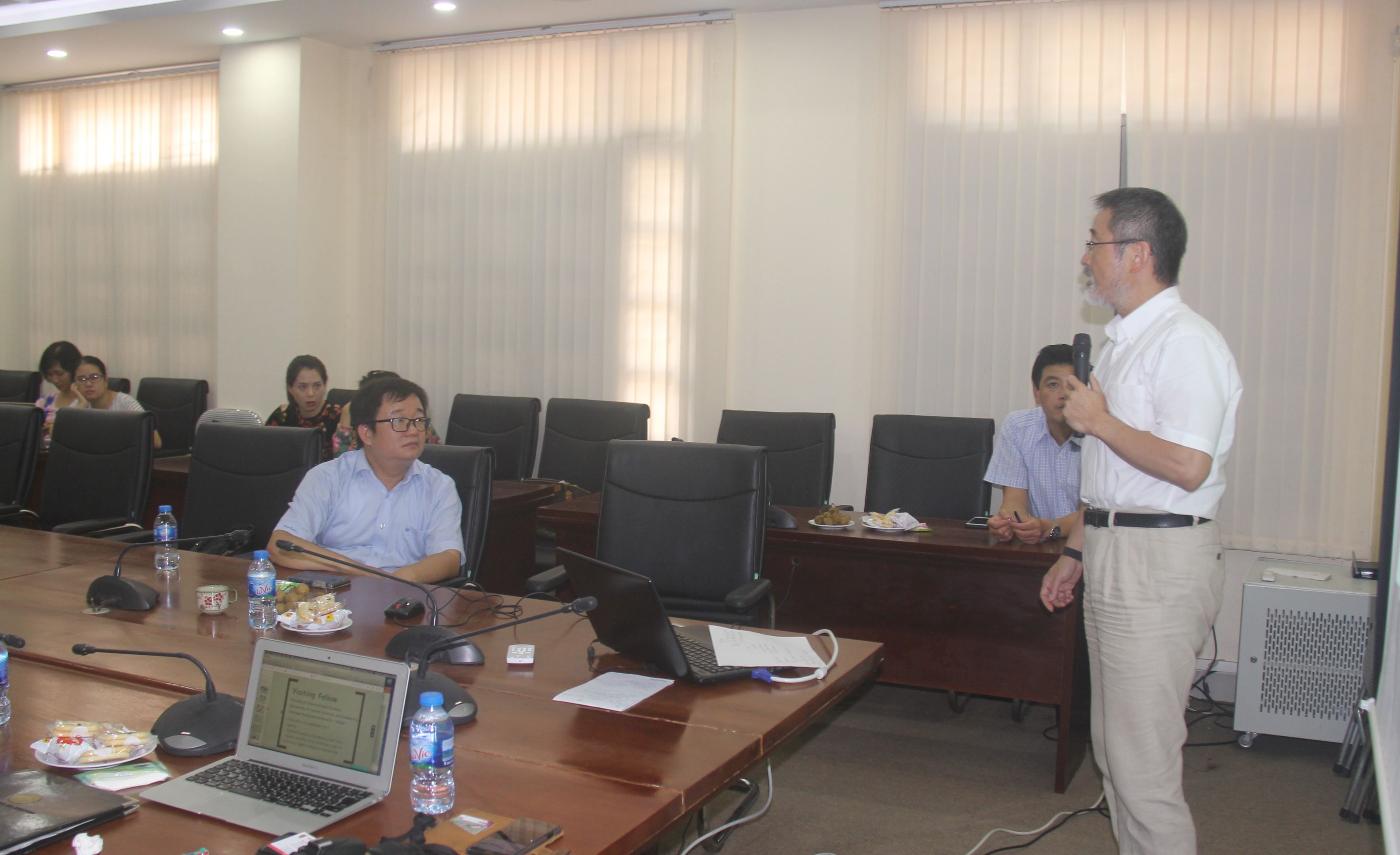
Professor. Norifumi Namatame(Japan)
The presentation also shared many skills for successfully conducting in-depth interviews, such as how to ask logical questions, how to build trust with interviewees, how to approach and pursue information creatively, how to maintain a neutral perspective while questioning, and how to cite and use interview data in research…
Emphasizing the crucial role of surveys in sociological research in particular and in social sciences and humanities in general, Associate Professor Dr. Nguyen Tuan Anh shared the requirements for designing a questionnaire that ensures the collection of scientific data relevant to the research content. These include skills in constructing open-ended and closed-ended questions; methods for selecting a random sample representative of a specific group; how to set up a questionnaire on a computer; and how to analyze questionnaire data to identify correlations and causal relationships between variables.
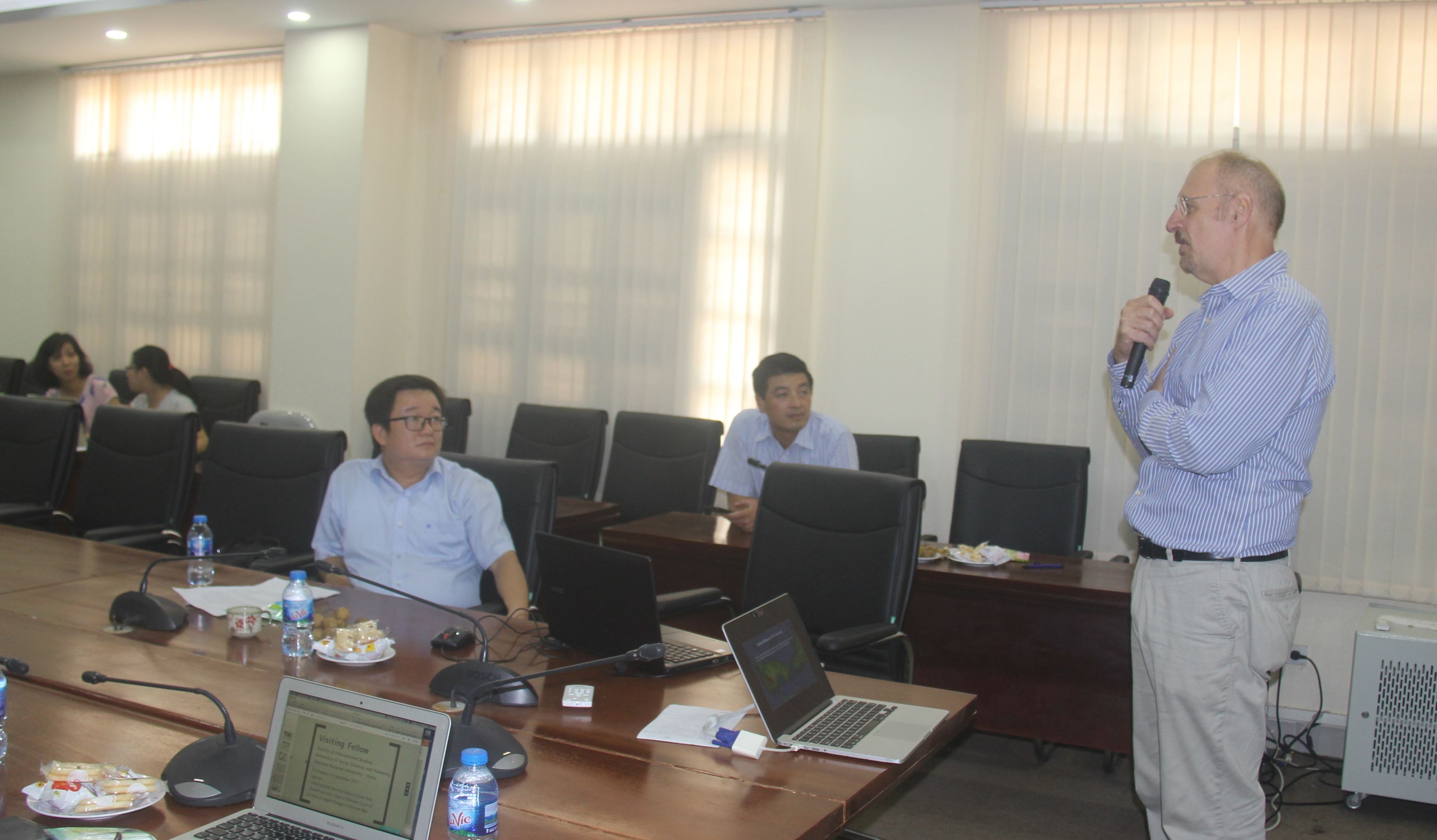
Professor Michael DiGregorio
Next, Professor Norifumi Namatame (Japan) and Professor Michael DiGregorio shared with the young staff members their practical experience in applying in-depth interviews and surveys to two specific research projects in Vietnam. These projects focused on: the impact of floods on the lives of farmers in some rural areas of Vietnam and the socio-economic impacts in localities affected by Agent Orange during the war.
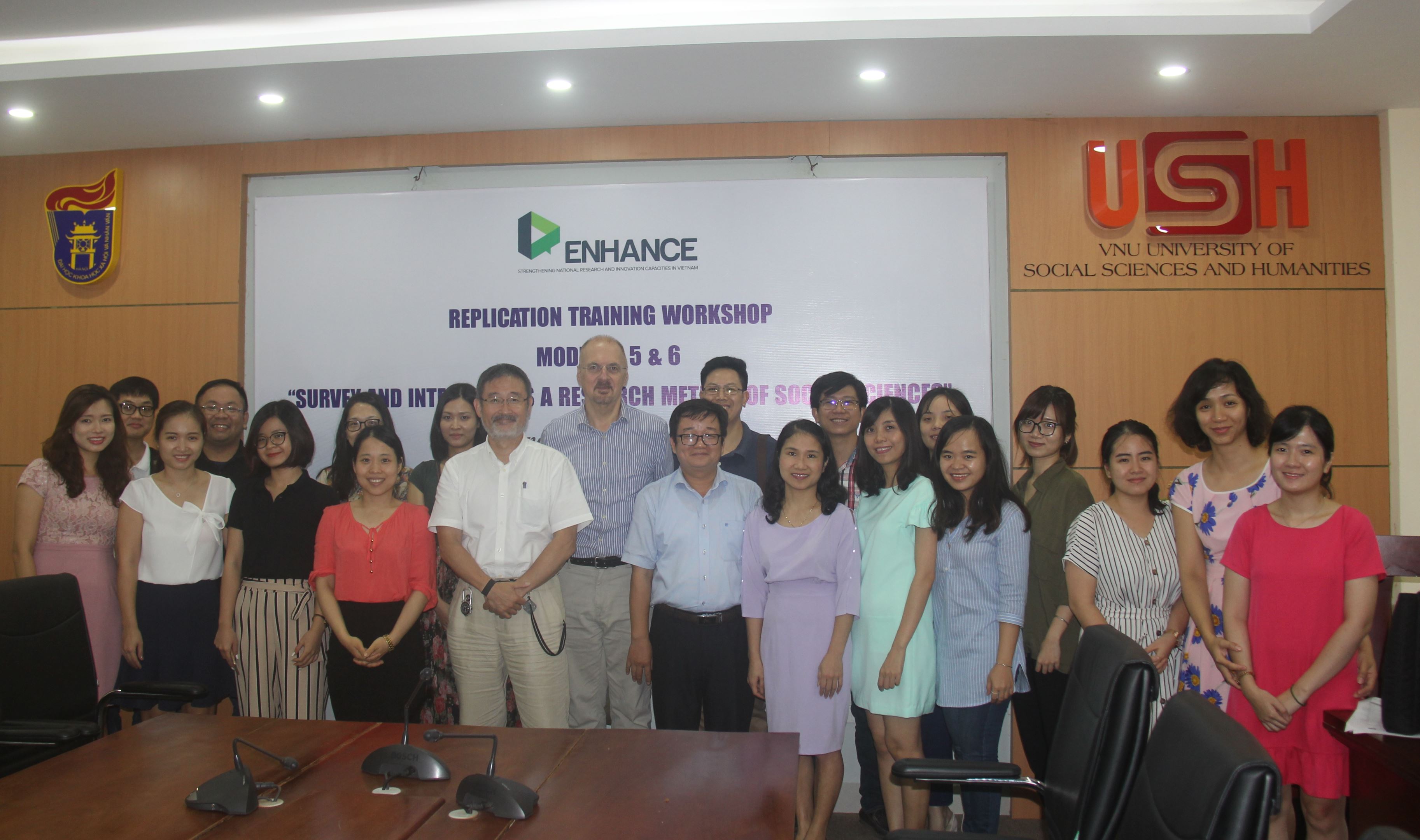
Author:Thanh Ha
Newer news
Older news